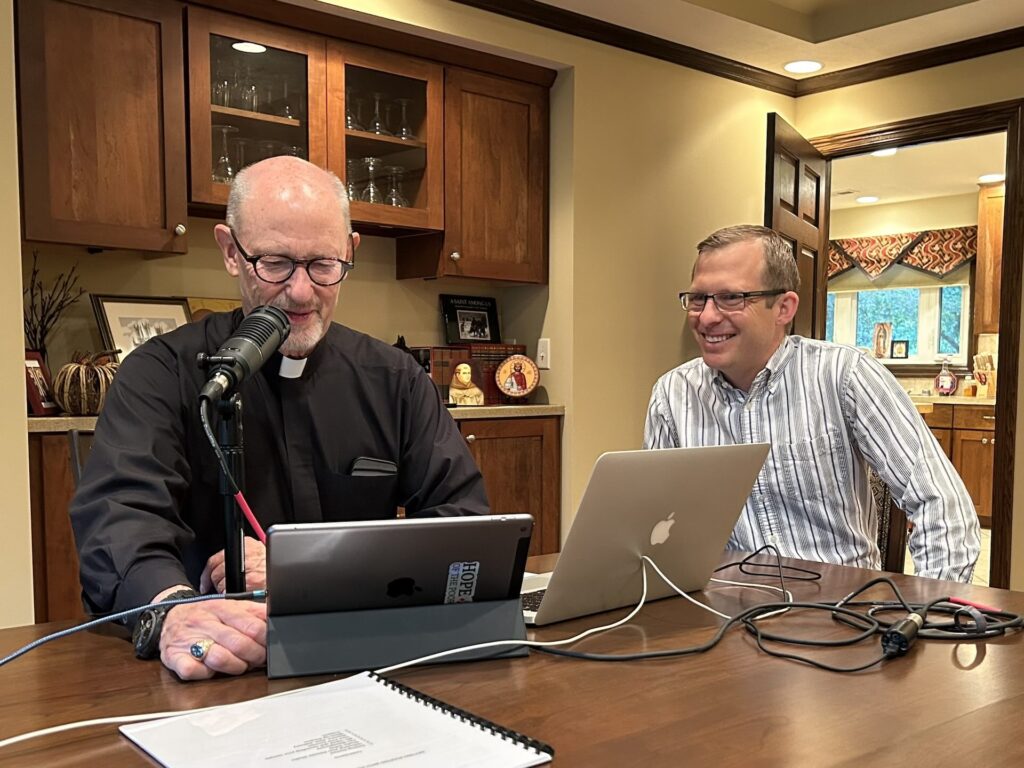My son, do not regard lightly the discipline of the Lord, nor lose courage when you are punished by him.
For the Lord disciplines him whom he loves, and chastises every son whom he receives.
(Hebrews 12:5-6)A man has good reason to be comforted in the midst of suffering that comes from his own fault.
If a man humbly and patiently receives suffering in this world with faith and hope in Christ’s passion, he has a medicine that is sure to cure him, and to remove the pains of the disease that would otherwise come upon him later in another world. (St. Thomas More, Dialogue of Comfort Against Affliction, 22)
After examining the Fall and seeing how Christ viewed suffering, it is now time to consider how the Lord turns the evil of suffering toward goodness.
It is one of God’s great miracles: he takes what is evil and finds a way to turn it to our benefit.
During the next four days, we will look at suffering as medicine, purification, loyalty, and redemption.
How does God use suffering as medicine?
We know Christ forgives our sins. But we sometimes can wrongly think that forgiveness means that there will be no punishment.
Yet, even in human affairs, forgiveness doesn’t necessarily wipe out all punishment.
If I steal something and ask forgiveness, I may be forgiven, but I must restore what I have stolen.
According to Jewish Law, stolen goods needed to be returned fourfold as a way of exacting a just punishment.
A murderer may repent of his sin after he has been caught, but he will still be committed to a prison sentence.
God is both just and merciful.
In his mercy, he lessens our punishment greatly.
But he doesn’t necessarily wipe it all out.
This is one of the reasons for our time in Purgatory.
The Church has long understood that when we suffer here without bitterness, and we receive suffering as the just retribution for our sins, God will lessen the suffering we will need to go through before entering heaven.
Our gracious Father will not allow us to be punished for the same sins twice, and our punishment here will be lighter than the pains of Purgatory.
A second way God uses suffering as medicine is to protect us from sins before we commit them.
As St. Thomas More wrote, “God sometimes sends suffering to preserve a person from sins into which he would otherwise fall” (Dialogue, 24).
We often complain when things don’t work out the way we wish, but we don’t see what God sees.
Losing a job, getting seriously sick, or facing a disappointment, may look to us like simple loss, but the Lord may be protecting us from worse things by standing in the way of our plans.
A third use of suffering as medicine is to help us fear God rightly.
The Psalmist prays, “Before I was afflicted I went astray; but now I keep your word” (Psalm 119:67).
Like a father giving a stern correction to a son who is being careless with sharp tools or firearms, the Lord will sometimes allow our suffering to give us a greater sense of the evil of sin, enabling us to be quicker to avoid future sins.
Let one of these three holy uses of suffering [retribution for our sins, as medicine to protect us, as medicine to help us fear God] be our first response to any suffering that comes upon us, brothers.
And today, ask the Lord to aid you in doing so promptly and consistently.




